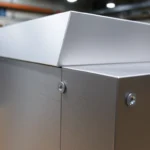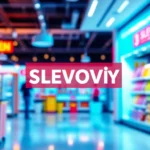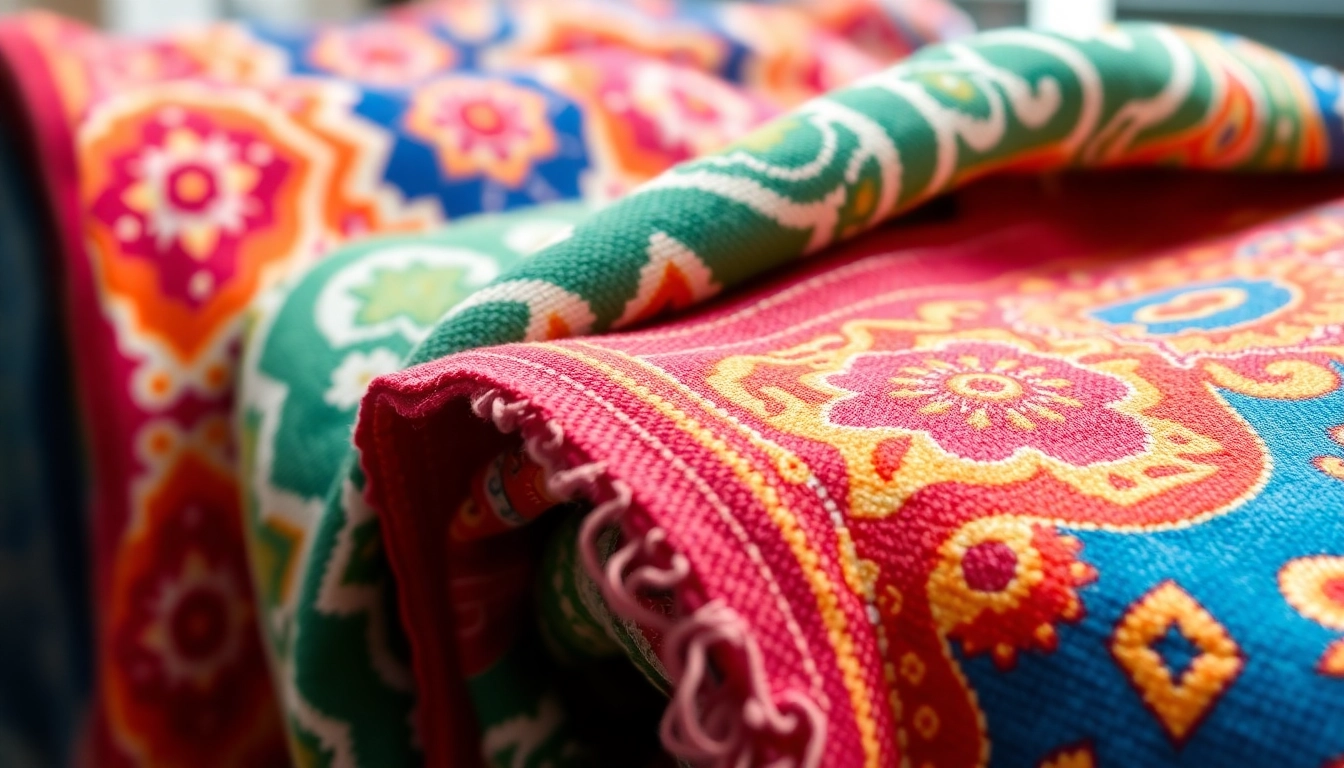Understanding the Global Demand for Towel Export from Pakistan
The international market for towels continues to exhibit robust growth, driven by demand for quality, eco-friendliness, and reliable supply chains. Pakistan has emerged as a significant player in this sector, leveraging its large textile industry base, skilled workforce, and strategic export infrastructure. As global consumers increasingly prioritize sustainable and customizable products, Pakistan’s towel export industry is positioned for sustained expansion. For businesses looking to capitalize on this opportunity, understanding current market dynamics, consumer preferences across key regions, and growth drivers is essential. The increasing export figures, which reached approximately USD 1.08 billion during FY 2024-25, underscore Pakistan’s rising influence in the global towel market (see how towel export from Pakistan)). This comprehensive overview explores the current trends, market demands, and future opportunities shaping Pakistan’s thriving towel export industry.
Current Trends and Export Performance Metrics
Recent data reveals that Pakistan experienced an 8.3% year-over-year increase in towel exports during CY23, with total exports valued at around USD 1.078 billion, outperforming the previous year’s figures (~USD 997 million). This growth is attributable to multiple factors, including enhanced manufacturing capacity, diversified product offerings, and expanding international markets. The trend is also reflected in shipment volumes, with over 75,000 shipments reported from June 2024 to May 2025, highlighting the industry’s scalability and resilience.
Comparing regional performances, India’s towel export value decreased slightly, emphasizing Pakistan’s growing market share and export competitiveness. These metrics demonstrate that Pakistani manufacturers are steadily capturing larger portions of markets in North America, Europe, and the Middle East, driven by quality improvements and cost efficiencies. Companies leveraging innovative manufacturing techniques and adhering to international standards have demonstrated higher success rates in securing long-term contracts, emphasizing the importance of continuous quality enhancement.
Key Markets and Consumer Preferences
Major Export Destinations
Pakistan’s primary export markets include North America, Europe, the Middle East, and parts of Africa. Countries such as the United States, UK, Germany, and the UAE are notable consumers of Pakistani towels due to their demand for premium, durable, and eco-friendly textile products. The rising disposable income and changing lifestyles in these regions fuel demand for luxury and specialty towels.
Consumer Preferences and Trends
Global consumers are increasingly prioritizing sustainability, customization, and high-quality fabrics. Natural cotton towels, especially those boasting organic certification, command a premium. The preference for soft, absorbent, and hygiene-conscious textiles has led Pakistani manufacturers to adopt innovative fiber blends, eco-friendly dyeing techniques, and sustainable production practices. Additionally, design trends favor minimalist, branded, and hotel-grade towels which enhance perceived value.
Growth Drivers in the Pakistani Towel Industry
Robust Textile Infrastructure and Skilled Workforce
Pakistan’s vast and established textile sector forms the backbone of its towel export industry. Facilities equipped with advanced machinery, coupled with a large pool of skilled labor, allow for efficient mass production and quality control. Clusters in Karachi, Faisalabad, and Sialkot have become hubs for towel manufacturing, fostering innovation and economies of scale.
Product Diversification and Innovation
Manufacturers are continuously exploring new textiles, printing techniques, and product types, including luxury bath towels, hotel linens, kitchen towels, and personalized products. Integration of technological innovations like laser branding and eco-friendly dyeing further enhances product appeal and sustainability.
Supporting Policies and Industry Promotion
The Trade Development Authority of Pakistan (TDAP) and industry bodies actively promote exports through trade fairs, documentation support, and market development initiatives. These efforts help Pakistani firms understand foreign market standards, streamline export procedures, and build international partnerships.
Manufacturing Excellence and Quality Standards in Pakistan
Leading Towel Manufacturers and Exporters
Pakistan hosts several notable towel manufacturers renowned for their quality and reliability. Companies like United Towel Exporters and CHTL are recognized for their premium products and adherence to international standards. These firms often employ ISO certifications and sustainability frameworks to meet the rigorous demands of global buyers.
Materials, Techniques, and Customization Capabilities
High-quality cotton, including Egyptian, Pima, and organic variants, is favored for its durability and softness. Manufacturers utilize advanced knitting and finishing techniques, allowing for customizable textures, sizes, and colors. Such flexibility meets specific customer requirements, enabling Pakistani exporters to offer end-to-end bespoke solutions.
Quality Certifications and Industry Best Practices
Achieving certifications like OEKO-TEX® Standard 100, GOTS, and ISO 9001 ensures that products satisfy international safety, environmental, and quality benchmarks. Investing in auditing, quality control labs, and continuous improvement processes has become critical to maintaining competitive advantage and customer trust.
Strategies for Successful Towel Export from Pakistan
Regulatory Compliance and Export Procedures
Understanding and navigating Pakistan’s export regulations, custom procedures, and documentation requirements are foundational. Staying updated with international standards and compliance certifications (such as REACH for Europe) reduces the risk of logistical delays and market entry barriers.
Cost Optimization and Competitive Pricing
Streamlining supply chains, bulk procurement of raw materials, and energy-efficient manufacturing help reduce operational costs. Exporters must balance quality with cost, leveraging economies of scale, to offer competitive prices without compromising standards.
Building Reliable Supply Chains and Partnerships
Establishing long-term relationships with raw material suppliers, freight providers, and international distributors is vital. Participation in trade fairs, industry associations, and digital marketplaces enhances visibility and fosters trust, which translates into repeat business and market expansion.
Sustainable and Eco-Friendly Towel Production
Use of Eco-Friendly Materials and Processes
Leading Pakistani manufacturers emphasize sustainable practices, employing organic cotton, recycled fibers, and biodegradable dyes. Water and energy conservation measures are integrated into production workflows, aligning with global environmental standards.
Corporate Social Responsibility Initiatives
Many companies undertake CSR programs focusing on fair wages, worker safety, and community development. Such initiatives foster a positive brand image and appeal to environmentally conscious consumers worldwide.
Market Differentiation through Sustainability
By marketing eco-friendly products with relevant certifications and transparent supply chains, Pakistani exporters can command premium prices and access niche markets that value sustainability as a key decision factor.
Future Outlook and Opportunities in the Pakistani Towel Sector
Emerging Markets and Innovation Trends
Growing middle classes in Southeast Asia, Africa, and Latin America present new opportunities. Innovation in smart textiles, antimicrobial treatments, and personalized branding will further enhance market appeal.
Investment and Expansion Opportunities
Greater investment in technology, automation, and capacity expansion will position Pakistan as a global innovation hub. Public-private partnerships and export-focused incentives could accelerate growth trajectories.
Technological Advancements and Industry Upgrades
Adoption of Industry 4.0 practices, including digital design, supply chain automation, and AI-driven quality monitoring, will improve productivity and consistency, reinforcing Pakistan’s competitive edge in the global market.









